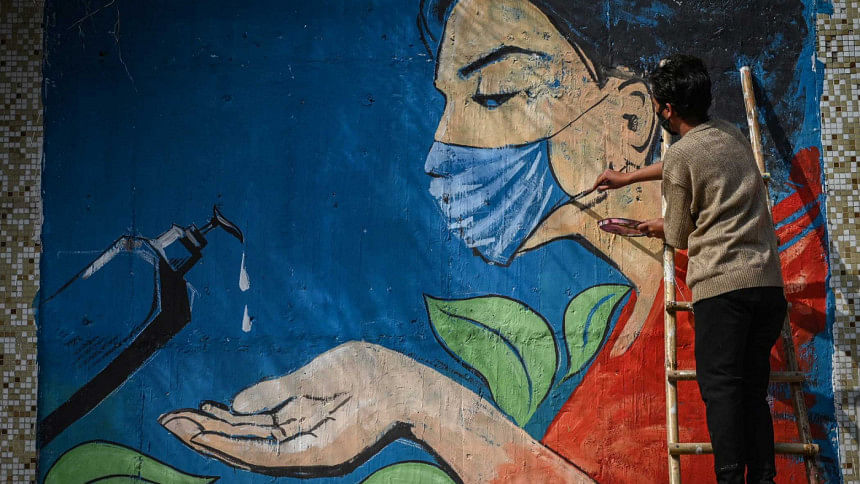Reawakening

I begin with an apology to my readers for my long absence. Covid played havoc with our lifestyle and livelihoods. Even then, we could make choices within limited parameters. My choice was to remain passive and wallow in my bad fortune—being traumatised by cancer during an epic pandemic. To compound matters, I had lost the one thing I valued the most: my passion for music!
Interestingly, it took just one innocuous walk on a beautiful spring afternoon to break the recurring cycle of depression and despair. Dusk was descending… there was something ethereal about the first blooms of spring against the setting sun, the chirping of birds flying home, the soft breeze rustling through the leaves and caressing my hair. The entire ambience and experience stirred my inner core, which was struggling to overcome all that was dark and distressful in the recent past.
In addition to the misfortune of my illness, I was weighed down by the grief of losing dear ones to Covid. My deepest regret was that I could not hold their hands as they said goodbye to the world. The remorse had left a gaping wound inside me. But, standing alone in the tree-lined path, I had a "reawakening". I needed to move away from what destructs, distorts and disorients to what heals, rejuvenates and empowers. I realised that this might be the right moment since nature has given us a respite from the scourge of Covid. No one knows if this is an interval or a finale, but why not seize the opportunity to reflect on how to restructure the contours of our lives?
It is perhaps no coincidence that this is also the time when Christians are observing Lent. And for Muslims, the month of Ramadan has just started. During Lent, Christians acknowledge misery, sorrow, and remorse and enter into a lamenting mode, seeking healing from the Divine. For many, lamenting is not just mourning, but also accepting that struggle is a part of the general drama of happiness and pain.
Ramadan, on the other hand, is not about finding a new path via remorse and lament, but trying to attain higher spirituality and resolving inner conflicts through reflection and action. Self-restraint through fasting provides a rare glimpse into the miseries of the less fortunate, making us aware of the injustices and unfairness of life. Prayers and meditation, on the other hand, help us understand that so many things are beyond our control, and that inner peace lies in some kind of surrender to a greater force.
In both practices—Lent and Ramadan—people strive to find catharsis through introspection, restraint and sacrifice. However, each one of us will need to find our own path whether it is Lent, Ramadan, Puja or simply meditating in the solitude of our homes. We will need to go through our own healing process and rid ourselves of our past baggage. It will be easy to clean wardrobes and cupboards by removing all that is inconsequential, but cleansing our emotional cobwebs will be much harder! As we restart our journey of life, let us concentrate on resetting our priorities and discarding all that is inessential, especially the monster within, called ego.
Even so, questions will persist… Why were some chosen to survive while so many others succumbed to the pandemic? On a broader plane, what is this miracle called life? Is it the spirit's desire to break free from the Source and explore, as the Sufis say? Or each one of us is sent on this earthly adventure by the Divine Will to test our love for Him through endurance and compassion!
Whether we find definitive answers or not, for now let us be thankful that we are alive and celebrate each new day as a gift. Through its cataclysmic upheaval, Covid has taught us a valuable lesson: that despite its sham, broken dreams, suffering and disenchantment, it is still a beautiful life!
Milia Ali is a Rabindra Sangeet exponent and a former employee of the World Bank.

 For all latest news, follow The Daily Star's Google News channel.
For all latest news, follow The Daily Star's Google News channel. 



Comments